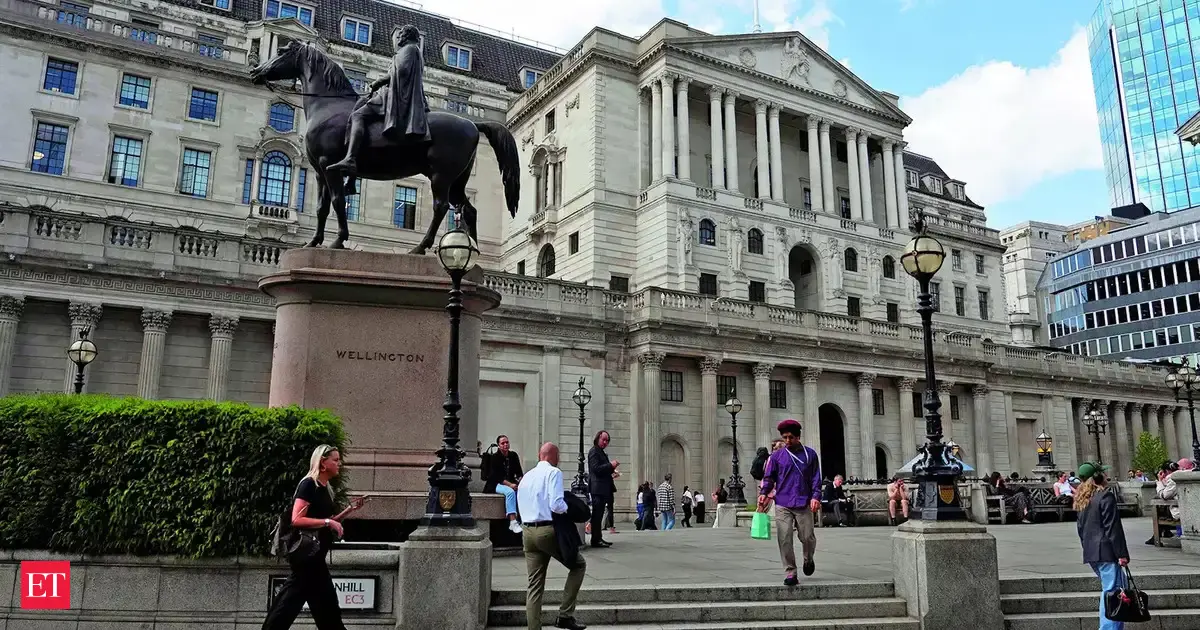Copyright brecorder

‘If Western countries, or some of them, were to abandon their habitual capitalist and nationalist postures and adopt a discourse founded on democratic socialism and an exit from neocolonialism, with major steps towards fiscal justice and sharing the tax receipts of the multinationals and billionaires all over the world, that would make it possible… to regain credibility with regard to the global South.’ — An excerpt from a 2022 published book ‘A brief history of equality’ by internationally renowned economist Thomas Piketty One generally hears that governments, including reportedly recent input received by the PM from ‘business individual/group’ while there is very weak ‘two-way’ traffic of opinion of a large working class – may that be working in financial institutions, public sector, markets, or on farms – with the policy circles, let alone at the highest levels of governments, other than occasional shutter-down strikes, which also reflects, just like the pressure group of big business in general, the showdown of large-trader collusion. In addition, the policy in general, overall globally since the early 1980s – including that in Pakistan a little later in the decade – has been ‘capitalism on steroids’ or Neoliberalism – both in or outside of an International Monetary Fund (IMF) programme. Pointing towards the seriously negative framework of the neoliberal order, renowned intellectual, Noam Chomsky indicated in his 1999 published book ‘Profit over people: Neoliberalism and global order’ the following: ‘The term “neoliberalism” suggests a system of principles that is both new and based on classical liberal ideas… The doctrinal system is also known as the “Washington Consensus”, which suggests something about global order. A closer look shows that the suggestion about global order is fairly accurate, but not the rest. The doctrines are not new, and the basic assumptions are far from those that have animated the liberal tradition since the Enlightenment.’ In fact, Neoliberalism has very similar orientation with the extractive practices of resources from colonies to the lands of their colonial masters, and in that sense the politico-economic extractive institutional design of the last four decades or so creates unjustified opportunities to support extraction from the poor to the rich. Seen in that perspective, renowned intellectual and a regular columnist of the ‘Guardian’, George Monbiot in his co-authored book ‘Invisible doctrine: the secret history of Neoliberalism’ provided a correctly alternate, and much-more meaningful definition of Capitalism as ‘Capitalism is the economic system founded on colonial looting. It operates on a constantly shifting and self-consuming frontier, on which both sate and powerful private interests use their laws, backed by the threat of violence, to turn shared resources into exclusive property, and to transform natural wealth, labor, and money into commodities that can be accumulated.’ It is, therefore, important to search alternatives, especially from the successful workings of democratic socialist policies, for instance, in an episode in US under US President Franklin Delano Roosevelt’s backlash policies to the so-called ‘Gilded Age’ under the banner of ‘New Deal’ policies – a precursor to what is required in principle now in the shape of ‘Green New Deal’ policies to deal with the scourge of Neoliberalism, and climate change crisis – and social democratic policies of the Scandinavian welfare states, particularly as practiced in Sweden as the ‘Swedish Model’ or ‘The Middle Way’ as referred to by Marquis Childs during the 1930s. The first major jolt to this neoliberal, ‘Washington Consensus’ was received by significant misgivings of an unregulated financial sector damaging a large number of loan owners by wrongly luring savers in the first place with risky investments at the back of low initial investment requirements, and in many cases low-optimal projects, including owning a house. The later failed experience of the austerity project in Europe to curtail deficits by squeezing aggregate demand much more than justified, especially the large growth sacrifice keeping unemployment high, and increasing debt-to-GDP-ratios, bringing no sustainable basis to deal with deficits – fiscal, and trade – over any meaningful period of time. Then came the negative outcome of lack of investments, the sub-optimal presence of regulation, and the ever-diminishing capacity of public sector – at the back of over-board practice of neoliberal mantra of austerity, liberalization, privatization, and outsourcing –all putting on back burner economic institutional efforts, and meaningful financial investments for enhancing much-needed level of resilience against existential threats, and creating opportunities for enhancing real wages, and for reversing the ever-deepening influence of moneyed interest of oligarchs, and their connivers over public policy, and in all of this keeping the working class out and away into the deep shadows of marginalization, and rising income- and wealth inequality. As a result, what has come rushing back in recent years – especially in the wake of Covid-pandemic causing strong recessionary headwinds, and global supply-shock induced inflationary spiral – is a backlash from demos, who have continued to reject over the last few years blaming of these issues by politicians in general on ‘the others’ – the immigrants, to utter shock even push for greater practice of neoliberal, austerity-based policies – like by IMF in general, and for instance by the economic team in Pakistan in recent years in particular, to secure loans to re-pay loans, which could have made sense for a short while, but not spread over years, given the country needs to quickly increase investments into reducing deep levels of poverty, inequality, and climate change related adaptation and fight-back. A major breakthrough in the shape of working class pushing through their voice is by meaningful representation of their voice by an otherwise quite unknown politician in the shape of Zohran Mamdani winning the mayoral elections of New York. In his own words, in a November 5, ‘Jacobin’ magazine published article ‘Zohran Mamdani: “hope is alive”’, which was winning speech, the New York mayor-elect pointed out: ‘The sun may have set over our city this evening, but as Eugene Debs once said, “I can see the dawn of a better day for humanity.” For as long as we can remember, the working people of New York have been told by the wealthy and the well-connected that power does not belong in their hands.’ Copyright Business Recorder, 2025



